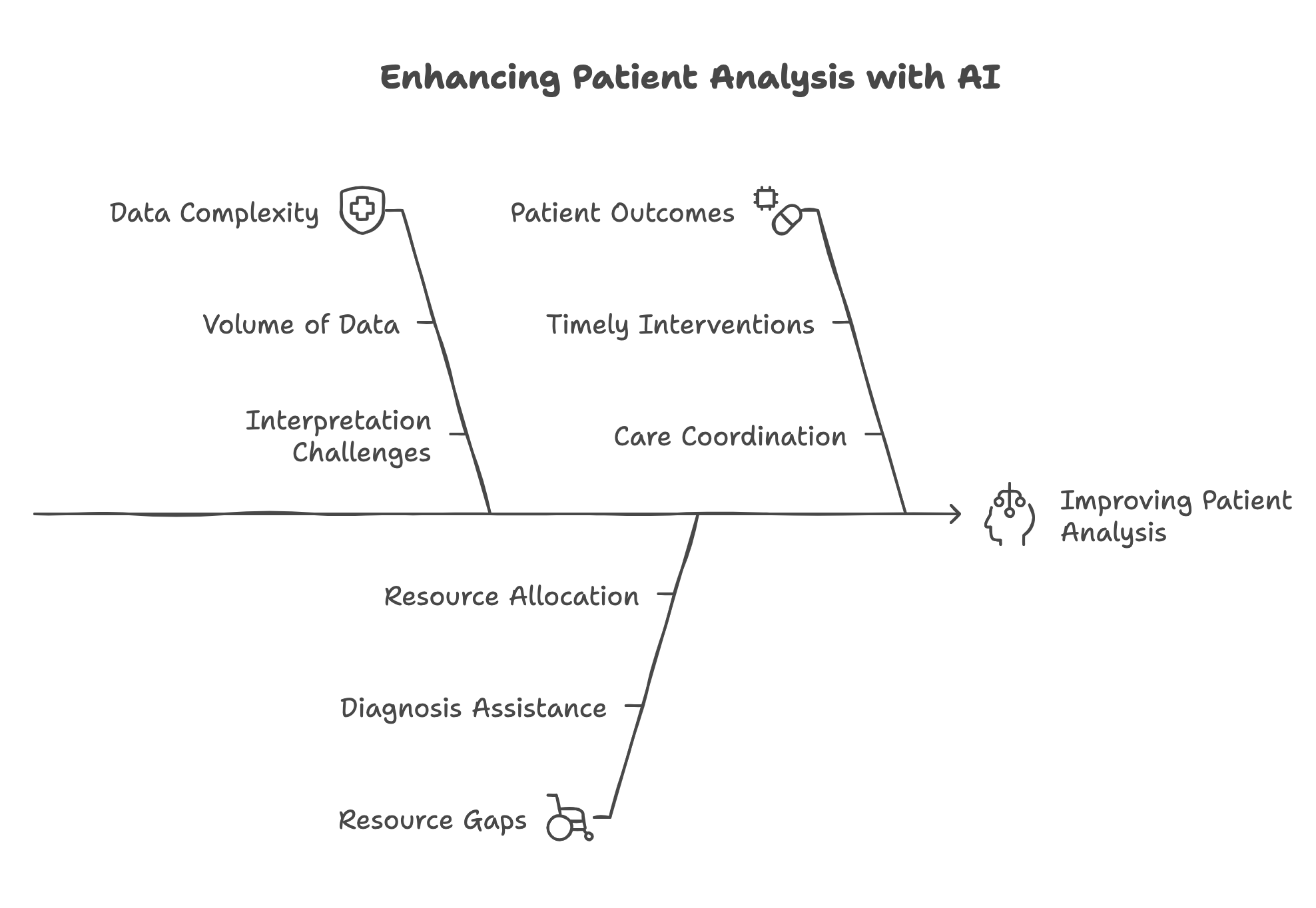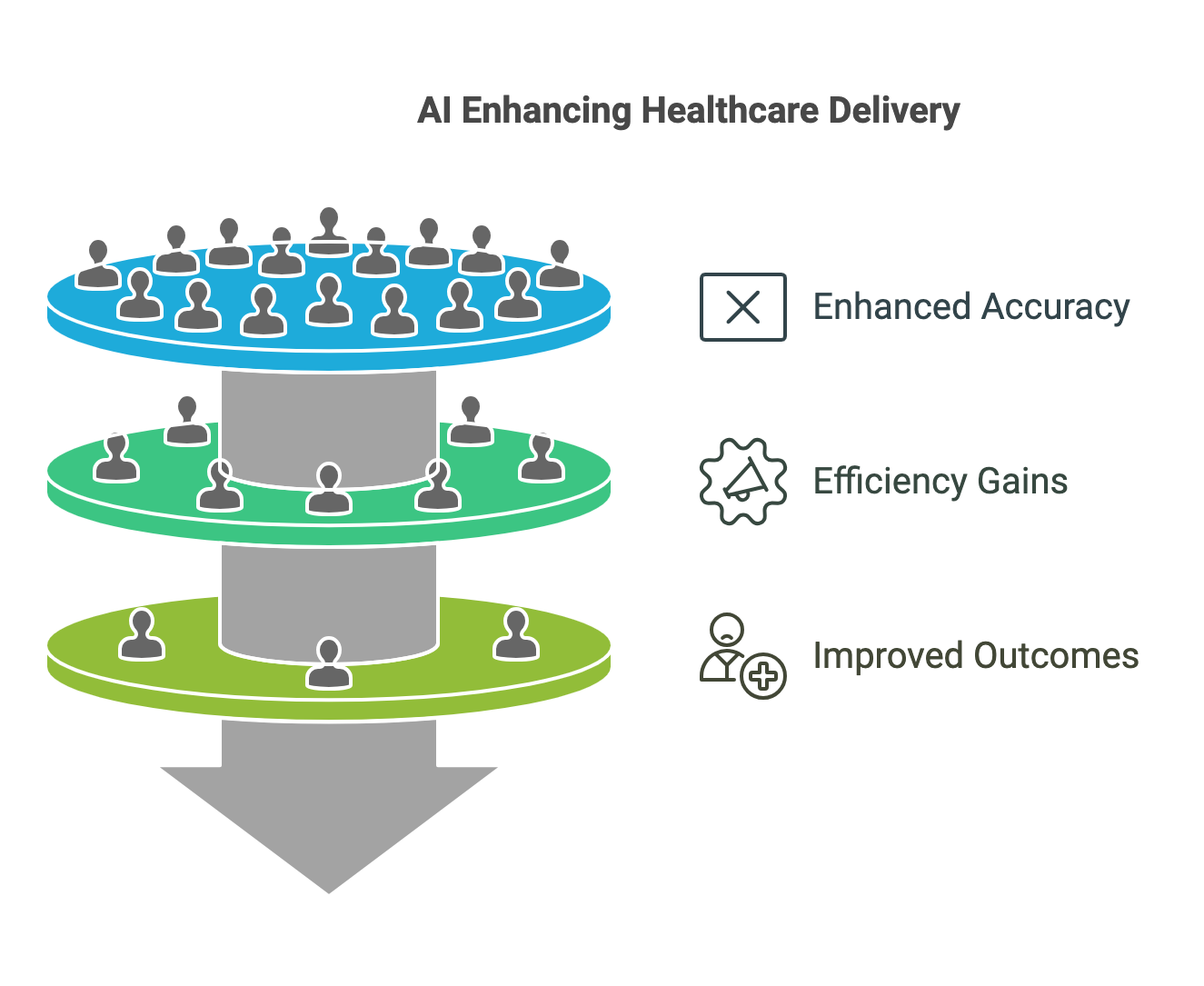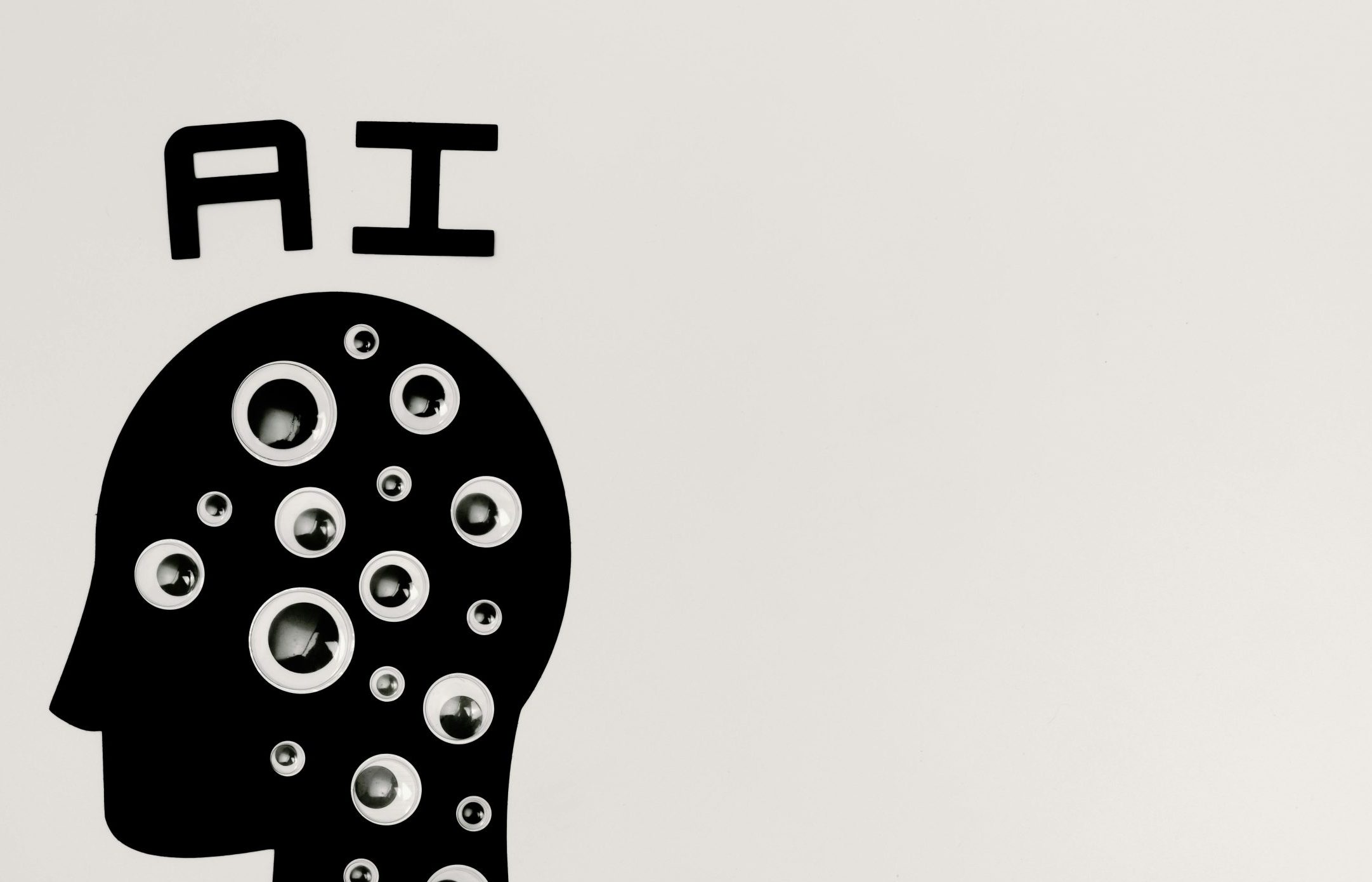Healthcare is experiencing a seismic shift, with artificial intelligence (AI) leading the charge in redefining patient care. AI’s rise in patient analysis empowers healthcare providers to derive data-driven insights, streamline workflows, and enhance treatment outcomes. As the complexity and volume of patient data grow, traditional analysis methods often fall short, opening the door for AI healthcare tools to revolutionize how care is delivered.
This comprehensive guide explores the transformative impact of AI on patient analysis, its benefits, tools, ethical considerations, and the healthcare industry’s future.
The Evolving Role of AI in Patient Analysis
Artificial intelligence combines machine learning, natural language processing, and predictive analytics to process vast datasets efficiently. These capabilities enable AI to uncover trends, provide actionable insights, and facilitate evidence-based decision-making. The applications of AI in patient analysis are as diverse as the challenges it addresses, from identifying rare diseases to predicting patient deterioration in real-time.
Why AI Matters in Patient Analysis
- Handling Data Complexity: The sheer volume of patient data—from clinical notes to wearable device metrics—requires advanced tools for meaningful interpretation.
- AI plays a significant role in filling resource gaps in healthcare. By assisting providers in areas like diagnosis, patient monitoring, and resource allocation, it enhances the efficiency and effectiveness of healthcare delivery.
- AI is a powerful tool in improving patient outcomes. By offering precision insights, it supports timely interventions, personalized treatments, and enhanced care coordination, ultimately leading to better patient outcomes.

Core Benefits of AI in Patient Analysis
The integration of AI into patient analysis delivers measurable advantages:
1. Enhanced Diagnostic Accuracy
AI systems outperform traditional methods by identifying subtle patterns in medical data. For example:
- Detecting early-stage cancers through AI-assisted imaging.
- Diagnosing rare conditions by comparing a patient’s symptoms to global datasets.
2. Reduced Administrative Burden
Clinicians often spend hours sifting through records or compiling reports. AI tools streamline these tasks by:
- Automating data extraction from electronic health records (EHRs).
- Generating summaries and clinical recommendations.
3. Proactive Patient Management
AI enables predictive care by identifying risks before they escalate. For instance:
- Monitoring cardiac patients for irregularities that could lead to complications.
- Using predictive analytics to prevent hospital readmissions.
4. Empowering Patients
AI extends beyond providers to engage patients directly. Virtual assistants, wearable devices, and mobile apps foster a sense of ownership over personal health by tracking metrics like:
- Blood sugar levels.
- Exercise and sleep patterns.
AI Healthcare Tools Revolutionizing Patient Analysis
The rise of AI healthcare tools has led to groundbreaking advancements across various medical specialties. Below, we explore the most impactful innovations.
AI in Medical Imaging
Imaging diagnostics are among the first areas to embrace AI, with tools that analyze scans for abnormalities.
How AI Enhances Imaging
- AI algorithms detect early signs of conditions like:
- Breast cancer in mammograms.
- Brain aneurysms in CT scans.
- Machine learning models refine their accuracy over time, improving diagnostic precision.
Impact
Studies have demonstrated that AI tools significantly reduce false positives and negatives, helping radiologists focus on complex cases.
Predictive Analytics in Healthcare
Predictive analytics relies on historical and real-time data to forecast outcomes and risks.
Real-World Applications
- Identifying patients likely to develop chronic illnesses such as diabetes.
- Predicting surgical complications and guiding post-operative care.
Benefits
Predictive insights help clinicians:
- Intervene early.
- Allocate resources more effectively.
Natural Language Processing (NLP)
NLP, a subset of AI, processes unstructured data like clinical notes and lab results.
Why NLP Matters
- Simplifies data interpretation for physicians.
- Converts text-based records into structured, actionable insights.
Outcome
By making patient data more accessible, NLP enhances care coordination and reduces errors.
AI Chatbots and Virtual Assistants
AI-powered chatbots play an essential role in improving patient engagement and administrative efficiency.
Key Functions
- Answering FAQs about conditions, medications, or procedures.
- Scheduling appointments and sending reminders.
- Guiding patients to the proper care pathways based on symptom inputs.
Long-Term Impact
These tools reduce the workload for healthcare staff while empowering patients with reliable, accessible information.
The Power of Data-Driven Insights
AI’s impact on patient analysis lies in its ability to generate data-driven insights from complex datasets. By synthesizing information from diverse sources, AI enables healthcare providers to make more informed decisions.
Harnessing Big Data for Patient Analysis
Healthcare generates enormous amounts of data daily, yet much remains untapped. AI integrates these datasets, which include:
- Genomic data.
- Wearable device metrics.
- Lifestyle and behavioral information.
Benefits of Big Data Integration
- Comprehensive View: AI offers a 360-degree view of patient health.
- Precision Care: Tailored recommendations based on clinical, genetic, and environmental factors.
Real-Time Monitoring and Alerts
AI-driven systems continuously monitor patient vitals, generating alerts for potential issues.
Examples
- ICU Monitoring: AI predicts life-threatening conditions like sepsis.
- Chronic Disease Management: Tools notify clinicians of worsening symptoms in patients with diabetes or heart disease.
Impact
These real-time insights, by reducing response times, have the potential to save lives and improve long-term outcomes, instilling a sense of hope and optimism in healthcare professionals.
Overcoming Challenges in AI Adoption
Despite its potential, the adoption of AI in patient analysis comes with hurdles that must be addressed.
1. Cost and Infrastructure
Deploying AI solutions requires significant investment in hardware, software, and training. Smaller practices may find it challenging to adopt these technologies.
Solutions
- Cloud-based AI tools reduce upfront costs.
- Government incentives and grants can support adoption in underserved areas.
2. Resistance to Change
Healthcare professionals may hesitate to rely on AI due to concerns about job security or distrust of automated systems.
Approach
- AI should be positioned as a collaborator rather than a replacement for human expertise, to make healthcare professionals feel valued and integral to the process. Providing education on AI’s role in enhancing clinical accuracy and efficiency is crucial to fostering this collaborative relationship.
- Provide education on AI’s role in enhancing clinical accuracy and efficiency.
3. Ethical Concerns
AI raises issues like data privacy, algorithm bias, and lack of transparency.
Recommendations
- Implement robust cybersecurity measures.
- Regularly audit AI models for fairness and accuracy.
- Develop explainable AI systems to foster trust among clinicians and patients.
The Future of AI in Patient Analysis
The transformative power of AI is still in its early stages, with countless innovations on the horizon.
Precision Medicine
AI accelerates the shift toward precision medicine, where treatments are tailored to individual patients.
Advances
- Using genetic data to select targeted therapies for cancer patients.
- Identifying optimal medication dosages based on a patient’s metabolic profile.
Integration with Telemedicine
The rise of telemedicine creates new opportunities for AI.
Key Features
- AI symptom checkers guide remote consultations.
- Wearable devices transmit real-time health data to providers.
Accelerated Drug Discovery
AI shortens the drug development lifecycle by analyzing molecular data to predict which compounds will most likely succeed.
The case for AI Adoption in Healthcare
The case for adopting AI in patient analysis is straightforward:
- Enhanced Accuracy: AI reduces diagnostic errors, improving patient safety.
- Efficiency Gains: By automating routine tasks, AI frees clinicians to focus on patient care.
- Improved Outcomes: Personalized insights enable treatments that address each patient’s unique needs.

Frequently Asked Questions (FAQs)
1. What is AI in patient analysis?
AI in patient analysis involves using artificial intelligence technologies, such as machine learning and natural language processing, to collect, interpret, and apply patient data. These tools help identify patterns, predict outcomes, and enhance the accuracy of diagnosis and treatment.
2. What are the primary benefits of AI in patient analysis?
- Improved Accuracy: AI tools detect subtle patterns in data, reducing diagnostic errors.
- Efficiency: By automating administrative and analytical tasks, AI saves time for healthcare providers.
- Personalized Care: AI considers a patient’s unique history, genetics, and lifestyle to tailor treatments.
- Proactive Interventions: Predictive analytics enable early detection of risks, preventing complications.
3. What types of AI healthcare tools are used in patient analysis?
Standard AI healthcare tools include:
- Medical Imaging Systems: Analyze X-rays, MRIs, and CT scans for abnormalities.
- Predictive Analytics Platforms: Forecast health risks and outcomes based on patient data.
- Natural Language Processing (NLP) Tools: Extract meaningful insights from unstructured data like clinical notes.
- AI Chatbots: Assist with scheduling, medication reminders, and patient education.
4. How does AI provide data-driven insights?
AI aggregates and analyzes data from various sources, including electronic health records (EHRs), wearable devices, and genomic studies. It identifies trends, correlations, and potential risks, offering actionable insights that guide clinical decisions.
5. Is AI in patient analysis safe and reliable?
Yes, when implemented correctly. Rigorous testing, regulatory compliance, and ongoing monitoring ensure the safety and reliability of AI systems. However, providers must address potential challenges like:
- Data Privacy Concerns: Ensure patient data is encrypted and compliant with regulations (e.g., HIPAA).
- Algorithm Bias: Regularly audit AI models to minimize biases that could impact certain demographics.
6. What are the ethical concerns associated with AI in healthcare?
Key ethical concerns include:
- Privacy and Security: Protecting sensitive patient data from breaches.
- Bias in Algorithms: Ensuring fair treatment for all patient groups.
- Transparency: Making AI decisions interpretable for clinicians and patients.
Healthcare providers must adopt ethical frameworks to mitigate these risks while maximizing AI’s potential.
7. Will AI replace doctors and healthcare professionals?
No, AI is designed to complement, not replace, healthcare professionals. It handles repetitive tasks, enhances decision-making, and provides data-driven recommendations, freeing up clinicians to focus on patient care. AI serves as a collaborative tool rather than a substitute for human expertise.
8. How can small healthcare practices afford AI tools?
While AI adoption may seem cost-prohibitive, affordable solutions are emerging, including:
- Cloud-Based AI Services: These reduce infrastructure costs.
- Grants and Incentives: Governments and organizations offer funding for AI adoption in underserved areas.
- Scalable Solutions: Start with basic tools like AI chatbots and expand as needed.
Ready To Bring AI-driven Solutions To Your Practice
AI in patient analysis is not just a trend but a fundamental shift in healthcare delivery. By harnessing data-driven insights and leveraging advanced AI healthcare tools, providers can improve diagnostic precision, streamline workflows, and deliver personalized care. While challenges like cost, resistance, and ethics persist, the benefits outweigh the obstacles.
As AI continues to evolve, its role in transforming patient analysis will only expand. This will pave the way for a future where healthcare is more innovative, more efficient, and more patient-centric.
Contact Karma Health today to explore how AI can elevate your patient care to new heights.




